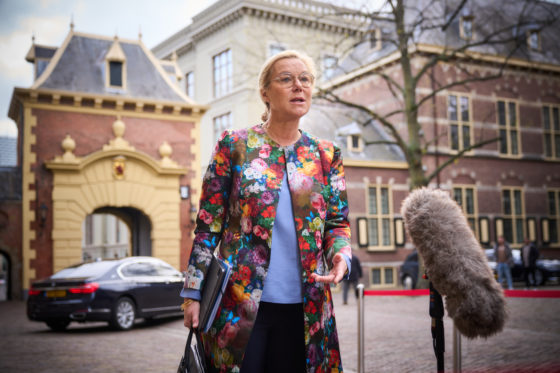Government needs to find €15bn to patch hole in finances


The cabinet will need to find €10 bn to €15 bn to plug a series of gaps in its public finances when the spring budget statement is published on June 1.
The biggest shortfall is the €7 bn in lost revenues following a Supreme Court ruling last year that the tax on savings and investments – known as the ‘box 3 tax’ – was calculated illegally.
The judgment was described at the time as a ‘midships rocket strike on the finances of the coalition deal’. Junior finance minister Marnix van Rijn is working on a new savings tax that complies with the ruling, but the government will have to compensate people whose savings were taxed under the old method since 2017.
Ministers will also have to implement a decision by the Senate to raise the state pension in line with the minimum wage, which will cost an estimated €2.4 bn in the first year alone.
The war in Ukraine has also brought new liabilities in the form of compensation for higher fuel costs, which will cost €6.2 bn, and a commitment to increase defence spending.
Growth fund
Finance minister Sigrid Kaag will have to outline where the extra billions will come from in the spring budget statement. NOS reported that one likely casualty is the national growth fund, known as the ‘Wopke-Wiebes fund’ after the two ministers who devised it, that was intended to invest €6.7 bn in developing the knowledge economy.
The higher pension rate could be compensated partly by tightening tax breaks that favour wealthier pensioners, such as the discounted rate of income tax.
Social affairs minister Karien van Gennip indicated last week that the extra cash to mitigate high fuel costs would most likely come from new taxes on assets. ‘If you want to do something for vulnerable people, you have to redistribute money in the Netherlands,’ she said. ‘That will have to be paid for by other people.’
Strong recovery
Offsetting the shortfall in finances is the more positive economic figures for 2021. The statistics agency CBS reported in February that the economy grew by 4.8% last year, almost 1% ahead of the forecast used as the basis for last September’s budget.
The annual budget deficit was 2.5%, inside the EU’s 3% limit, better than most expectations, while the national debt was 52% of GDP, 10 percentage points lower than the government’s most optimistic forecast, resulting in a virtual saving of around €20 bn.
The strong economic recovery from coronavirus has another knock-on benefit because it means the government has had to spend less on compensating businesses for the impact of the pandemic.
But the cabinet is wary of relying on benign economic conditions given the anticipated rise in interest rates and the turbulence caused by the war in Ukraine. ‘There is no guarantee that the economic tide will continue to be favourable,’ a spokesman for the finance ministry told the Financieele Dagblad.
Thank you for donating to DutchNews.nl.
We could not provide the Dutch News service, and keep it free of charge, without the generous support of our readers. Your donations allow us to report on issues you tell us matter, and provide you with a summary of the most important Dutch news each day.
Make a donation